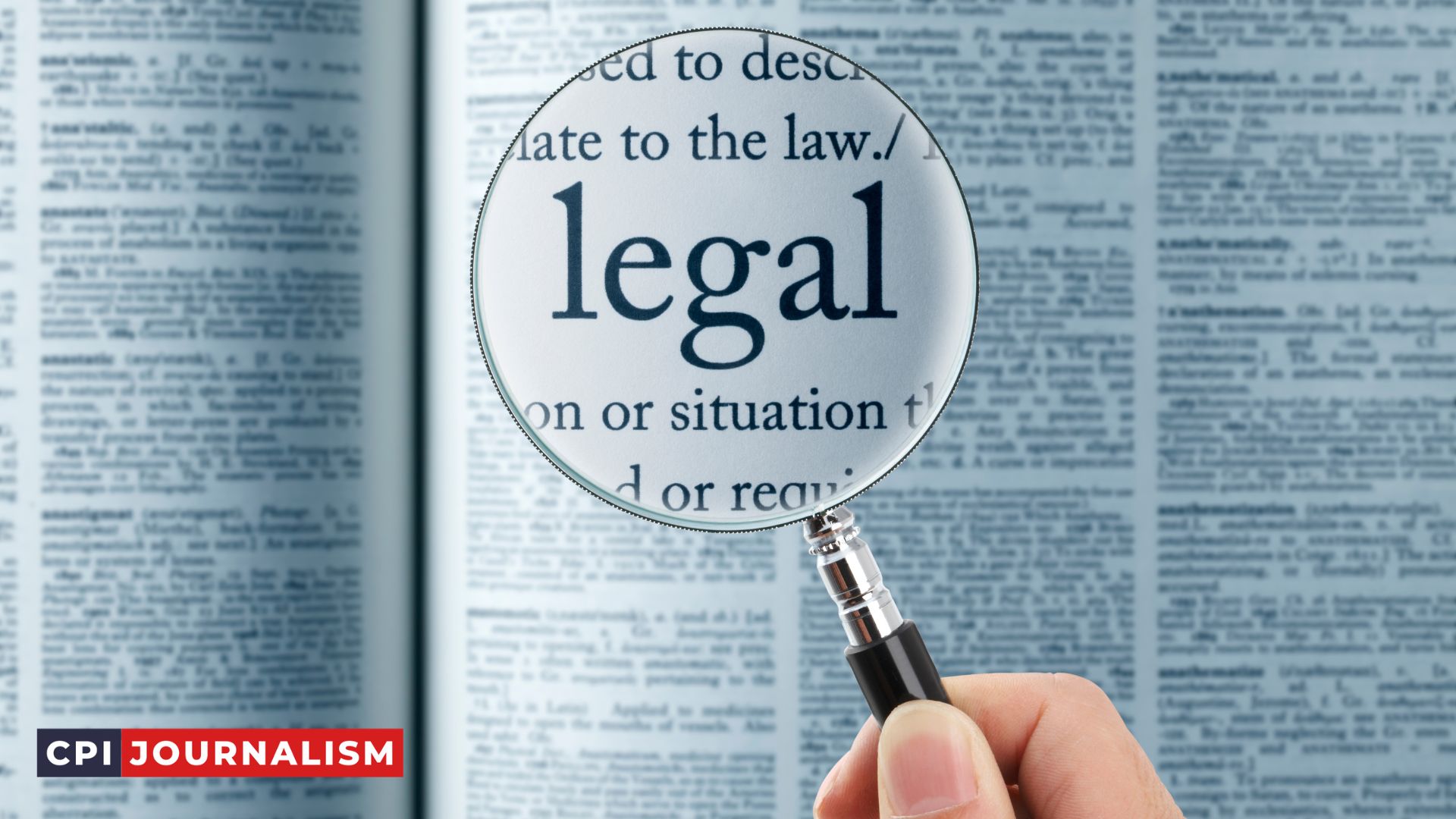How Can Journalists Use Freedom Of Information Act Requests And Other Legal Means To Obtain Information For Investigative Stories?
Greetings fellow Journalists! As an experienced journalist, I want to share my wisdom with upcoming Journalists on how to use Freedom of Information Act (FOIA) requests and other legal means to obtain information for investigative stories.
FOIA requests are an important tool for journalists looking to uncover information and uncover the truth.
You can use FOIA requests to access information from government agencies, or you can use other legal means like subpoenas and court orders to access information from private entities.
In this article, I will discuss how to use these tools to obtain information and how to best use it for investigative stories.
A. Definition of Freedom of Information Act (FOIA)
The Freedom of Information Act (FOIA) is a federal law that provides the public with the right to access certain records from federal executive branch agencies.
It allows any person, regardless of nationality or citizenship, to request access to federal agency records or information. FOIA applies to all executive branch agencies, including the military and intelligence agencies.
Under FOIA, any person can request access to federal records for any reason. There is no requirement to provide any information about yourself or the purpose of your request. The only requirement is that the request must be in writing and sent to the right agency.
FOIA also requires that federal agencies respond to requests within 20 business days, and they must provide a written response that includes the requested information, an explanation of why the request was denied, or an estimate of when the requested information will be available.
In addition, FOIA requires federal agencies to make certain records available to the public without requiring a FOIA request.
This includes records that have been released three or more times in response to FOIA requests, records that are more than 25 years old, and records that are otherwise deemed to be of public interest.
B. Overview of Investigative Journalism
Investigative journalism is a form of journalism that involves researching, analyzing, and reporting facts that are not generally available to the public. It often involves uncovering secrets or exposing the truth behind a particular issue or event.
In order to do this, investigative journalists often utilize the Freedom of Information Act (FOIA) requests and other legal means to gain access to information that they need to uncover the truth.
The FOIA is a federal law that allows individuals to request access to federal documents, including those that are otherwise classified or confidential. FOIA requests are often used to obtain information about government activities or to gain access to sensitive documents.
By submitting a FOIA request, a journalist can gain access to a variety of documents and records, which can help them uncover any wrongdoing or other information that may be of interest to their story.
In addition to FOIA requests, investigative journalists can also utilize other legal means to gain access to information. These can include public records requests, public forums, court records, interviews, and other sources of information.
By utilizing a variety of sources, investigative journalists can gain a fuller picture of a particular issue or event and uncover any potential wrongdoing.
Investigative journalism is an important part of the journalistic process, and the use of FOIA requests and other legal means to gain access to information can help journalists uncover the truth behind a particular issue or event.
By utilizing these methods, investigative journalists can ensure that they are providing the public with accurate and reliable information.
C. Benefits of Using FOIA Requests and Other Legal Means to Obtain Information for Investigative Stories
For journalists seeking to uncover the truth behind a story, the Freedom of Information Act (FOIA) and other legal means can be a powerful tool. FOIA requests can provide access to documents and records that would otherwise be inaccessible.
By utilizing the legal process, journalists can gain access to a wealth of information that can help to support or expand on the story.
The primary benefit of using FOIA requests and other legal means is that journalists can access information that would otherwise remain hidden.
FOIA requests can be used to obtain records from government agencies, such as police departments and the FBI, which can provide an invaluable source of information.
In addition, FOIA requests can also be used to request records from private businesses and organizations. This can be especially useful in cases where there is evidence of wrongdoing or unethical behavior.
Another benefit of using FOIA requests and other legal means is that journalists can be sure that the information they obtain is accurate and reliable.
FOIA requests require that the government or organization respond to the request in a timely manner, which ensures that the information provided is up-to-date and reliable.
Lastly, using FOIA requests and other legal means can help to protect journalists from legal action. By utilizing the FOIA process and other legal means, journalists can ensure that they are not violating any laws or regulations while conducting their investigations.
This can be especially beneficial in cases where the journalist suspects that the information they are seeking may be potentially damaging to the individual or organization they are targeting.
In conclusion, using FOIA requests and other legal means can be a valuable tool for investigative journalists. By utilizing the legal process, journalists can gain access to a wealth of information that can help to support or expand on the story.
Additionally, FOIA requests can provide reliable and accurate information and can protect journalists from potential legal action. For these reasons, FOIA requests and other legal means can be an invaluable tool for investigative journalists.
II. How Journalists Can Use FOIA Requests to Obtain Information
The Freedom of Information Act (FOIA) is a powerful tool for journalists to obtain information, documents and records from U.S. government agencies, both federal and state.
FOIA requests can be used to uncover vital information, such as government contracts, internal documents and records, or environmental and safety data.
The process for filing a FOIA request can be complicated, but it is worth it to gain access to this valuable information.
The first step is to identify a specific agency or office to target in your request. You can look up a list of FOIA contacts for different agencies on the Department of Justice website.
Once you have identified an agency or office, you can start to formulate the request. Be sure to be as specific as possible about what information you are looking for. The more specific the request, the more likely you are to receive a response.
When submitting a FOIA request, be sure to clearly state any deadlines and include personal contact information so that the agency can reach out to you if necessary. After filing the request, you should receive an acknowledgment from the agency that your request has been received.
It is important to remember that the FOIA process can take several weeks or months to complete, so it is important to be patient. In addition, the agency may or may not grant the request, depending on the information you are seeking.
In conclusion, FOIA requests are a great tool for journalists who are looking to uncover information and documents from government agencies. The process can be complicated, but with patience and a well-crafted request, journalists can gain access to valuable information.
A. What Information Can Be Obtained Through FOIA Requests
The Freedom of Information Act (FOIA) is a powerful tool for journalists seeking to uncover information that is kept hidden from the public.
Through FOIA requests, journalists can access information held by federal and state agencies, such as government records, documents, and statistics.
As a journalist, you can use the FOIA to investigate a wide range of government activities, including:
• Policies and procedures of government agencies
• Reports, studies, and data gathered by government agencies
• Records related to government contracts
• Internal investigations into government activities
• Records on public officials
• Records regarding the use of taxpayer money
• Records of public hearings, meetings, and conferences
The types of records available through the FOIA vary from agency to agency, so it is important to research the types of records an agency is most likely to have in order to make the most effective request.
In addition, some agencies may require additional information or additional forms in order to process the request. It is important to remember that FOIA requests can take a long time to process, so it is important to plan ahead and make your request as soon as possible.
B. How to File a FOIA Request
Filing a FOIA request is the process of obtaining information from a public or governmental agency. Journalists can use FOIA requests to uncover information that may be of use in their investigative stories.
Here is a step-by-step guide on how to properly file a FOIA request:
1. Identify the agency: The first step in filing a FOIA request is to identify the agency that holds the information you are seeking. It is important to note that FOIA requests are only applicable to federal agencies, not state or local agencies.
2. Collect the necessary information: You will need to provide certain information in your request, such as your name, contact information, and the specific information you are requesting.
It is important to provide as much detail as possible when filing a FOIA request to ensure that the agency can find the information you are looking for.
3. File the request: You can file a FOIA request online, by mail, or by fax. It is important to check with the specific agency to find out what the preferred filing method is.
4. Follow up on the request: The agency has 20 business days to respond to a FOIA request. If they do not respond within this time period, you can contact them to follow up on the request.
By following these steps, you can file an effective FOIA request to obtain the information you need for your investigative story.
C. What to Do If a Request Is Denied
If you are denied a Freedom of Information Act (FOIA) request, there are a few steps you can take to help you obtain the information you are looking for.
The first step is to appeal the decision. You can do this by writing a letter to the agency that denied your request and explain why you believe the information should be released.
If your appeal is denied, you can then try to negotiate with the agency or even file a lawsuit to force the agency to turn over the documents.
In the event that you are still denied the information, there are other legal means you can use to obtain the information. You can contact an attorney who specializes in open records laws to help you navigate the legal process.
You can also contact other organizations or individuals who may have access to the same documents. Finally, you can use investigative techniques to investigate the story yourself, such as interviewing sources or conducting public records searches.
Ultimately, even if your request is denied, you can still use other legal means to obtain the information you are looking for. Using a combination of FOIA requests, appeals, negotiating with agencies, and engaging in investigative techniques can help you get the information you need to tell your story.
Other Legal Means Of Obtaining Information
In addition to the Freedom of Information Act (FOIA) requests, there are other legal means that journalists can use to obtain information for investigative stories.

Here are some of the most commonly used:
1. Court Records: Journalists can access court records by either requesting them through the court directly or through a public records request. Court records can include anything from criminal records to civil lawsuits. Furthermore, journalists can access court proceedings and hearings in most jurisdictions.
2. Public Records: Public records are documents that are created and maintained by government entities. These can include things like property records, birth and death certificates, marriage licenses, police reports, and more.
Journalists can access these documents by filing a public records request with the appropriate government agency.
3. Interviews: Journalists can conduct interviews with people who may have information relevant to their story. This can include experts, witnesses, and even the subjects of the story. Interviews can be done in-person or over the phone, depending on the situation.
4. Subpoenas: Journalists can also use subpoenas to compel people or entities to produce documents or provide testimony. These are typically used in more serious investigations and should only be used after all other methods have been exhausted.
These legal means of obtaining information can help journalists get the information they need to tell their story. However, it is important to keep in mind that these methods are subject to various laws and regulations, so it is important to be familiar with these before attempting to use them.
A. Subpoenas
Subpoenas are an important tool for investigative journalists, as they can be used to obtain evidence and testimony for stories. A subpoena is an order from a court that requires a person or organization to produce documents, records, or other tangible evidence for use in a legal proceeding.
Subpoenas can be used to obtain information from individuals, businesses, and government agencies. However, it is important to note that not all states allow journalists to use subpoenas. Therefore, it is important to know the laws in your jurisdiction before pursuing a subpoena.
When obtaining information through a subpoena, it is important to remember that the documents or other evidence obtained may be subject to certain protections or restrictions. For example, certain confidential or privileged information may not be available to the public.
It is also important to remember that obtaining documents or evidence through a subpoena may require a court hearing or other legal proceedings.
Finally, when using a subpoena to obtain information, it is important to remember that the individual or organization from whom the information is being sought may be able to challenge the subpoena.
Therefore, it is important to be familiar with the applicable laws and procedures in order to ensure that all aspects of the subpoena are being properly handled.
B. Court Orders
Court orders provide a powerful tool for investigative journalists to access information not otherwise available through Freedom of Information Act (FOIA) requests. When a court order is obtained, it requires an agency or private entity to provide information to a requesting party.
Court orders can be obtained in a variety of ways. For example, they can be obtained through lawsuits, subpoenas, or even through an order from a judge. Depending on the type of information sought, the process for obtaining a court order can vary.
In most cases, an investigative journalist must demonstrate that the information sought is relevant to a story they are working on.
This means that the journalist must be able to provide evidence that the information is necessary for an investigative story, and that the information cannot be obtained through other means.
Investigative journalists also must be able to demonstrate that they are pursuing a legitimate public interest in obtaining the information.
Once a court order is obtained, the entity that is required to provide the information must comply with the order. If the entity does not comply, it can be found in contempt of court and may face fines or other punishments.
When using court orders to access information, investigative journalists should always exercise caution and use their best judgment.
Court orders can be powerful tools, but they can also be abused. It is important to remember that court orders should only be sought when absolutely necessary, and that they should not be used frivolously.
C. Interviews
Interviews are one of the most important tools available to a journalist in an investigative story. Interviews can provide a wealth of information, and often times can be the most revealing source of information.
When conducting interviews, it is important to remember that they should not be conducted solely for the purpose of gathering information.
It is also important to use interviews to build relationships, to ensure that sources are comfortable in speaking to you and to gain insight into the story.
When interviewing people for an investigative story, it is important to remember that the people you are speaking to are likely to be under a great deal of pressure, and that the information they give you may be sensitive.
Therefore, it is important to ensure that you are being respectful and sensitive in your questioning.
It is also important to take notes during the interview, as this will ensure that you are able to accurately report the information given to you. Additionally, you should be aware of any laws or regulations that may be relevant to the interview, such as those concerning libel and privacy.
Finally, it is important to remember that the information provided by an interviewee may be biased. It is therefore important to consider the context of the interview, and to be aware of any potential biases in the information being provided.
D. Other Resources For Obtaining Information
Apart from the Freedom of Information Act (FOIA), there are several other ways journalists can legally obtain information for investigative stories.
The first step is to consult with a knowledgeable attorney who is experienced in the laws governing the right of journalists to access public documents.
A lawyer can provide invaluable advice on how to craft an effective FOIA request and can also advise you on other available resources.
In addition to public documents, journalists can also rely on other sources of information. For example, if you are investigating a company or organization, consider contacting employees, former employees, and other individuals who may have insight into the situation.
This can be done through interviews, surveys, and other methods of gathering information.
In some cases, journalists may be able to access confidential documents and other information through confidential sources. This is particularly useful when the subject of an investigation is attempting to keep the story from being published.
It is important to remember, however, that confidential sources must be protected and their identities kept confidential.
Finally, journalists should also consider using social media and the internet to obtain information. This can include searching public records, researching news articles, and utilizing search engines to uncover information.
By utilizing all of these resources, journalists can effectively gather the information they need to tell an important story.
IV. Conclusion
In conclusion, the Freedom of Information Act requests and other legal means provide journalists with an excellent opportunity to obtain important information for investigative stories.
By understanding the rules and regulations associated with these requests, journalists can take advantage of the legal framework in place to obtain the information they need.
Furthermore, these methods provide journalists with a secure and reliable way to obtain information without the need to rely on potentially biased sources.
With the proper use of the Freedom of Information Act requests and other legal means, journalists can uncover important information to craft compelling stories.
A. Summary of How Journalists Can Use FOIA Requests and Other Legal Means to Obtain Information for Investigative Stories
Using Freedom of Information Act (FOIA) requests and other legal means to obtain information for investigative stories is a powerful tool in the journalist’s toolbox.
FOIA requests are used to compel government agencies to release information that they would otherwise not make available to the public.
The request must be directed to the appropriate government agency, and must specify what type of information is being requested.
Once the request is received, the agency is obligated to respond within a certain period of time, and must either provide the requested information or deny the request with a valid legal reason.
In addition to FOIA requests, other legal means for obtaining information for investigative stories can include filing requests for public records, interviewing witnesses, or using the court system to gain access to documents.
Depending on the subject matter, a journalist may also use subpoenas or court orders to compel a witness or entity to provide information or appear at a hearing.
By utilizing FOIA requests and other legal means to obtain information for investigative stories, journalists are better equipped to uncover the truth and inform the public.
As such, it is important for journalists to familiarize themselves with the applicable laws and understand the process for making a FOIA request or other legal request for information.
Doing so will ensure that journalists are able to make the most of their investigative stories and provide an accurate and comprehensive report.
B. Benefits of Using FOIA Requests and Other Legal Means to Obtain Information for Investigative Stories
For investigative stories, Freedom of Information Act (FOIA) requests and other legal means can be invaluable tools for journalists.
FOIA requests are an effective way to access information held by governmental bodies and agencies, which can be invaluable for obtaining hard-to-get documents and data.
In addition to the documents made available through FOIA requests, journalists can also use other legal means to obtain information, such as requesting public records, interviewing public officials, and using the court system to access documents.
The primary benefit of using FOIA requests and other legal means is that it gives journalists access to documents and data that would otherwise be inaccessible. This can provide the journalist with a much deeper understanding of the topic they are investigating.
In addition, FOIA requests and other legal means can be used to access information quickly and efficiently. This can be especially helpful for time-sensitive stories, as the documents and data can be obtained quickly and easily.
Another benefit of using FOIA requests and other legal means is that it allows the journalist to remain unbiased and impartial in their reporting.
By using legal means to access information, the journalist can be sure that the information they are presenting is accurate and unbiased. This can help the journalist remain objective and ensure that their reporting is factual and accurate.
Overall, FOIA requests and other legal means can be invaluable tools for journalists conducting investigative stories. Not only do they provide access to documents and data that would otherwise be inaccessible, but they also ensure that the information is accurate and unbiased.
1. What Types Of Information Can Be Obtained Through Freedom Of Information Act (Foia) Requests?
As an experienced journalist, I can say that Freedom of Information Act (FOIA) requests can provide a wealth of information for journalists. FOIA requests can be used to obtain a variety of documents from governmental agencies, including federal, state and local agencies.
Through FOIA requests, journalists can access documents such as records of government proceedings, memos and reports, emails among agencies and documents that are otherwise unavailable to the public.
FOIA requests can also be used to obtain information on things such as budget documents, audits and investigations, personnel records, investigative files and records of contracts and grants.
FOIA requests can provide a wealth of important information that can be used to write stories, investigate government decisions and policies, and uncover government wrongdoing.
FOIA requests are an invaluable tool for journalists and can be used to uncover important stories and information.
2. How Can Journalists Use Foia Requests To Obtain Information For Investigative Stories?
As an experienced journalist, I can confidently say that using FOIA requests to obtain information for investigative stories is one of the best tools in the arsenal of any journalist.
FOIA requests allow journalists to access information that is normally not available to the public, such as government documents and records. This information can be used to uncover patterns and trends, which can then be used to craft compelling investigative stories.
The process of filing a FOIA request is relatively simple, but it does take some effort. First, you must determine what type of records you are looking for and what government agency is likely to have them. Then, you must craft a request and submit it to the agency.
Once the request is received, the agency has a certain amount of time to respond. The response could be anything from granting the request, to denying it, to providing a redacted version of the records.
Journalists should also be aware of their rights as FOIA requesters. For example, it’s important to know that agencies may charge fees for processing requests, and they may also deny requests if they are overly broad or if the records are deemed to be exempt from disclosure.
Overall, using FOIA requests to obtain information for investigative stories can be a powerful tool for journalists. With some effort and knowledge of their rights, journalists can unlock information that can help fuel their stories.
3. What Other Legal Means Are Available To Journalists To Obtain Information For Investigative Stories?
As an experienced journalist, I can tell you that there are a variety of legal means available to journalists to obtain information for investigative stories.
One of the most powerful tools available is the Freedom of Information Act (FOIA), which grants journalists the right to access documents and records from the federal government.
State and local governments may have similar laws that allow for access to public records. Furthermore, court records and public databases can be used to obtain information on topics such as public health, financial records, and criminal justice.
In addition to these records, journalists can also use public meetings such as city council meetings, legislative hearings, and press conferences to obtain information. Interviews with experts, sources, and witnesses can also be used to get more in-depth information.
Additionally, investigative reporters often use data analysis and computer-assisted reporting, which can help them uncover stories that would otherwise be difficult to find.
Ultimately, the resources available to investigative reporters are vast and varied. From legal documents to public meetings, journalists have a wealth of resources at their disposal to help them uncover stories and uncover the truth.
4. What Are The Legal Implications Of Using Foia Requests And Other Legal Means To Obtain Information?
As an experienced journalist, I can tell you that using FOIA requests and other legal means to obtain information has its own legal implications that must be taken into consideration.
FOIA requests are a powerful tool for obtaining information from government agencies, but the process can be complicated.
Furthermore, the law governing FOIA requests is subject to interpretation, so it’s important to be familiar with the applicable laws in your state or country.
In addition to the legal implications of using FOIA requests, there can be some ethical considerations as well.
For example, if the information you are seeking could potentially harm someone, it’s important to consider the repercussions of releasing it. It’s also important to make sure that all information you obtain is accurate and up-to-date.
Finally, it’s important to understand that in some cases, the information you are seeking may not be available or may be subject to restrictions.
In those cases, it may be necessary to explore other legal means to obtain the information, such as subpoenas or court orders. Again, it’s important to be familiar with the applicable laws in your state or country.
In short, using FOIA requests and other legal means to obtain information can be a powerful tool for journalists, but it can also have legal and ethical implications that must be taken into consideration.
As an experienced journalist, I strongly recommend that upcoming journalists become familiar with the laws and regulations governing FOIA requests and other legal means of obtaining information.
5. How Can Journalists Ensure That The Information Obtained Through Foia Requests And Other Legal Means Is Accurate And Reliable?
As experienced journalists, it is important to ensure that the information obtained through FOIA requests and other legal means is accurate and reliable. This can be done in several ways.
Firstly, it is important to verify the source of the information. Identifying the source of the information is an essential step in establishing its accuracy and reliability.
This involves looking into the background of the source, as well as the credentials of the source. Additionally, it is important to ensure that the source is a legitimate one and not a fraudulent source.
Secondly, it is important to cross-check the information with multiple sources. This step is important in ensuring the accuracy and reliability of the information. By cross-referencing the information with other reliable sources, journalists can verify the accuracy of the information.
Thirdly, it is essential to be aware of the legal implications of using the information. The use of information obtained through FOIA requests and other legal means is subject to certain limitations and restrictions.
Therefore, it is important to be aware of the legal implications of using the information and to abide by the applicable laws.
Finally, it is important to use the information in a responsible manner. Journalists should use the information responsibly and with integrity. They should use the information to inform and educate their readers, rather than to manipulate or deceive them.
By following the above steps, journalists can ensure that the information obtained through FOIA requests and other legal means is accurate and reliable.
6. What Are The Best Practices For Using Foia Requests And Other Legal Means To Obtain Information For Investigative Stories?
As an experienced journalist, I believe that utilizing FOIA requests and other legal means to obtain information for investigative stories is an invaluable tool. To ensure success when using these methods, I have come up with a few best practices that I have found to be incredibly effective.
Firstly, it is essential to ensure that the request is clear and concise. This means making sure that your request is targeted and specific, leaving no room for misinterpretation.
Also, make sure to provide as much detail as possible about the documents you are seeking, as this will make it easier for the agency to respond quickly.
Secondly, be prepared to follow up with the agency if necessary. When submitting a FOIA request, it is important to set yourself a timeline for when you should expect a response.
If you do not receive a response within this timeframe, reach out to the agency to check the status of your request.
Thirdly, take into account the regulations of the organization you are making the request to. Each agency will have their own specific FOIA regulations and procedures, so be sure to familiarize yourself with them before submitting a request.
This will help to ensure that your request is processed in a timely manner.
Finally, remember to keep copies of all your correspondence with the agency. By doing this, you can have an accurate record of the progress of your request and any potential roadblocks.
Overall, utilizing FOIA requests and other legal means to obtain information for investigative stories is an excellent way to uncover valuable information. By following these best practices, you can ensure that you get the best results from your request.
7. How Can Journalists Protect Their Sources When Using Foia Requests And Other Legal Means To Obtain Information?
As an experienced journalist, I understand the importance of protecting the identity of sources when using FOIA requests and other legal means to obtain information. This is essential to ensure the safety of sources, as well as to maintain the integrity of the story.
There are several strategies that journalists can use to protect their sources when using FOIA requests and other legal means to obtain information.
Firstly, it is important to ensure that the source is anonymous when submitting FOIA requests. For example, the request should not include the name of the source or any other identifying information.
Additionally, journalists should not submit requests with their own name on them, as this could lead to their sources being identified.
Secondly, journalists should be aware of the potential for sources to be identified through the records they receive. If a document contains identifying information, such as a name or address, it is important to redact that information from the story before publishing.
Lastly, journalists should be aware of the legal implications of using FOIA requests and other legal means to obtain information.
It is important to understand the relevant laws and regulations in your area, and to ensure that the requests are within the scope of those laws.
Additionally, journalists should be aware of any potential privacy issues that could arise from using FOIA requests and other legal means to obtain information.
Overall, journalists should be mindful of the potential for sources to be identified when using FOIA requests and other legal means to obtain information.
By taking the necessary precautions and understanding the relevant laws, journalists can ensure that their sources are protected.
8. What Are The Potential Risks Associated With Using Foia Requests And Other Legal Means To Obtain Information?
As an experienced journalist, I understand the risks associated with using Freedom of Information Act (FOIA) requests and other legal means to obtain information.
Some of the potential risks include:
1. Time Delay: FOIA requests often take a long time to process. Depending on the complexity of the request or the backlog of requests the agency is dealing with, it could take weeks, months, or even years to receive the information requested.
2. Cost: Filing a FOIA request can be expensive. Fees for copying documents and attorney’s fees can add up quickly.
3. Denial of Request: FOIA requests can be denied for various reasons. Agencies are not required to provide information that they deem confidential or sensitive.
4. Legal Challenges: If an agency denies a FOIA request, the requester can challenge it in court. This can be a lengthy and expensive process.
5. Reputational Damage: Using FOIA requests to obtain information can be seen as an aggressive approach. This could lead to negative public perception of the requester.
6. Loss of Confidential Sources: Agencies can use FOIA requests to identify confidential sources that the requester has used. This could lead to the loss of trust and future cooperation with those sources.
9. How Can Journalists Use Foia Requests And Other Legal Means To Obtain Information While Respecting The Privacy Of Individuals?
As experienced journalists, we understand the need to protect the privacy of individuals while still obtaining the information necessary to inform our stories.
Fortunately, journalists have access to a number of legal means, such as Freedom of Information Act (FOIA) requests, to obtain information while still respecting the privacy of individuals.
Using FOIA requests, journalists can request documents and records from federal, state, and local government agencies. This can include documents that may contain personal information, such as census data or other public records.
When submitting a FOIA request, journalists should be sure to include language that requests the documents be redacted or edited to protect the privacy of individuals.
Journalists can also use other legal means to obtain information while still protecting the privacy of individuals. For example, many journalists use public records or other publicly available information to piece together stories.
This information can be used to identify trends or connections, without ever revealing the identities of those involved.
Finally, journalists can also use the court system to obtain information while respecting the privacy of individuals. When requesting the release of documents or records under court order, journalists should make sure they include language that protects the privacy of individuals.
This can include language that requests the documents be redacted or edited to ensure the identities of individuals are not revealed.
By using FOIA requests, public records, and the court system, journalists can obtain the information needed to inform their stories, while still respecting the privacy of individuals.
10. What Are The Ethical Considerations For Using Foia Requests And Other Legal Means To Obtain Information For Investigative Stories?
As an experienced journalist, I believe it is important to consider the ethical implications of using Freedom of Information Act (FOIA) requests and other legal means to obtain information for investigative stories.
The use of FOIA requests and other legal means to obtain information can be a great tool for investigative journalism, but it is important to consider the ethical implications of doing so.
First, it is important to consider the potential impact of the story on those individuals or organizations who are the subjects of the investigation.
It is important to be mindful of the potential harm that can be caused to the subjects of the investigation by reporting on sensitive information.
As such, it is important to ensure that the information obtained through FOIA requests or other legal means is used responsibly and in a way that minimizes potential harm to the subjects of the investigation.
Second, it is important to consider the potential impact of the story on society as a whole. As a journalist, it is important to be mindful of the potential implications of the story on society.
For example, a story about government corruption may have serious implications for public trust in government and it is important to consider these implications when reporting on such a story.
Finally, it is important to consider the potential legal implications of using FOIA requests or other legal means to obtain information. It is important to be aware of the laws and regulations in place that govern the use of FOIA requests and other legal means to obtain information.
Failure to comply with these laws and regulations can have serious legal ramifications, so it is important to be mindful of the potential legal implications of using FOIA requests and other legal means to obtain information.
In conclusion, as an experienced journalist, I believe it is important to consider the ethical implications of using FOIA requests and other legal means to obtain information for investigative stories.
It is important to ensure that the information obtained is used responsibly and in a way that minimizes potential harm to the subjects of the investigation and to society as a whole.
It is also important to be aware of the laws and regulations in place that govern the use of FOIA requests and other legal means to obtain information in order to avoid any potential legal ramifications.







